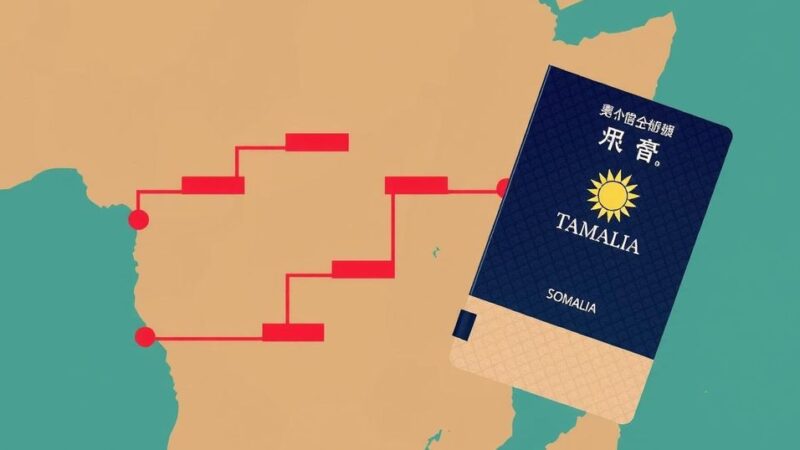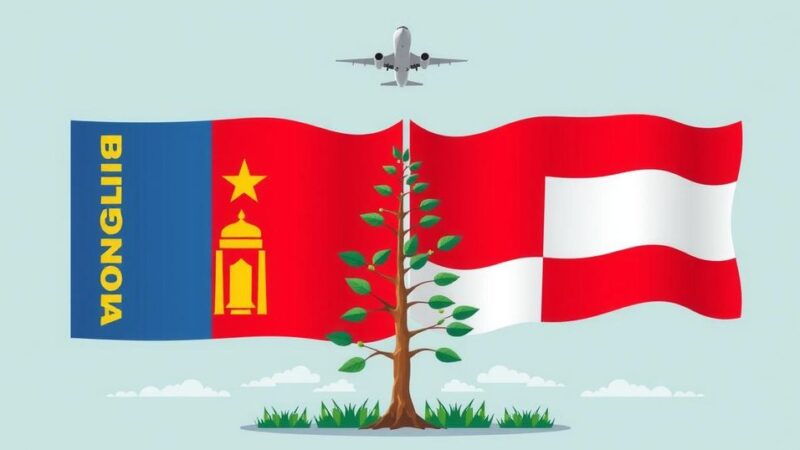This article discusses the author’s reflections on Vietnam and the ongoing implications of war 50 years after the Fall of Saigon, linking personal memories with contemporary political tensions. Poetry is highlighted as a crucial tool for resistance against war and fascism, emphasizing the importance of artistic expression in turbulent times.
The recent reflections on Vietnam coincide with the 50th anniversary of the Fall of Saigon — a poignant reminder of past conflicts and ongoing struggles. The narrative begins with a personal memory, recalling a distressing phone call from 1969 that revealed a father’s injury during the Vietnam War. From a young age, the author sensed the U.S. involvement in Vietnam was misguided, with the war’s mythology hauntingly echoing through time.
Flying over Vietnam’s lush landscapes filled with rice paddies tended by women in conical hats, the author felt immersed in a vibrant yet surreal world. Flooded fields and meandering rivers formed a backdrop to memories long buried but never forgotten. The stark realities of war mesh with the beauty of the terrain, bringing with it an unsettling awareness of past atrocities and contemporary echoes of conflict.
As we commemorate another war anniversary, the parallels drawn to today’s geopolitical climate reveal a concerning pattern. The discourse suggests that war hawks from both sides of the U.S. political spectrum are pushing for further conflicts, with ever-expanding military ambitions. The current events in Palestine are likened to the My Lai Massacre — a haunting parallel of suffering and violence invading daily life.
Moreover, the commentary argues that the current political climate showcases an alarming eagerness for military confrontations with nations like China, Russia, and several others, suggesting expansive, almost feverish ambitions reminiscent of the Monroe Doctrine. The author perceives this relentless drive for war as indicative of broader societal issues, including a shift towards extreme political ideologies.
April also marks National Poetry Month, prompting a reflection on the importance of artistic expression during turbulent times. The author underscores the power of poetry as a tool against fascism and war, emphasizing the need for such voices in a world that seems increasingly chaotic. The message is particularly relevant against the backdrop of contemporary fears, where individuals like Elon Musk are depicted as players in a broader political game.
In a recent radio interview, poet Kim Stafford shared a poignant poem from Gaza, which echoes the suffering of individuals ensnared in violence. The imagery of sorrow and loss serves as a reminder of the profound impact of war, and Stafford’s reflections on personal grief provoke thoughtfulness about contemporary struggles.
The author recounts a transformative trip to Vietnam for a biodiversity research project, highlighting the contrasting goals of cultural understanding and the devastating statistics attached to the war. The narrative presents stark figures, such as millions of civilian lives lost and the introduction of “ecocide,” a term to describe warfare that destroys the ecological fabric of a country.
Moreover, the exploration of poetry by contemporary voices like Yusef Komunyakaa reflects the hunting of memories from the war. The poet describes moments of tension and awareness — a subtle dance between recognition and avoidance of the past. These reflections on war’s lingering impact serve as a solemn reminder of its implications stretching beyond mere statistics.
Stafford, with his deep anti-war sentiment, also grapples with the grief and sorrow of our times. His work resonates with younger generations, connecting them through shared experiences of loss and a yearning for hope. Encounters with nature become a form of solace, as the act of witnessing life becomes an act of resistance.
In the end, the author concludes that poetry, much like civic action, serves as a poignant weapon against the faults of a society struggling under the weight of its own history. In a world eager for war, the voices of artists and poets become crucial in combating collective grief and envisioning a more peaceful future. This blending of personal narrative, historical context, and artistic homage creates a powerful tapestry mourning the past while advocating for a hopeful tomorrow.
The article reflects on the personal and historical significance of Vietnam amid the ongoing propensity for conflict in contemporary society. As we mark 50 years since the Fall of Saigon, the author underscores the importance of poetry as a form of resistance against the overarching narrative of war and fascism. The blend of personal memories and current events suggests a cyclical nature of conflict, emphasizing the need for artistic expressions that inspire hope and healing. Ultimately, the piece serves as a reminder that remembering the past is essential for shaping a more peaceful future.
Original Source: www.thenewsguard.com






